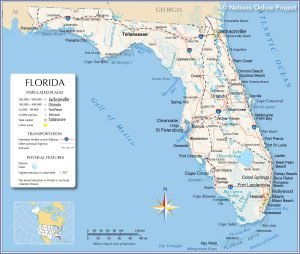NASA Leaders Head to COP28 to Discuss NASA’s Role in Understanding and Fighting Climate Change

WASHINGTON, DC - APRIL 21: Former US Senator Bill Nelson, nominee to be administrator of NASA, attends a Senate Committee on Commerce, Science, and Transportation confirmation hearing on Capitol Hill on April 21, 2021 in Washington, DC. Nelson was a senator representing Florida from 2001-2019. (Photo by Saul Loeb-Pool/Getty Images)
NASA Administrator Bill Nelson and other leaders from the agency are set to participate in the 28th United Nations Climate Change Conference of the Parties (COP28), scheduled to take place from November 30 to December 12, 2023, in Dubai, United Arab Emirates. This significant global conference convenes countries dedicated to addressing climate change, aligning with the Biden-Harris Administration’s commitment to environmental priorities.
This marks a historic occasion as the NASA administrator joins an anticipated gathering of approximately 70,000 participants, including world leaders and representatives from nearly 200 countries. The conference’s primary focus involves reviewing the implementation of key climate change agreements such as the United Nations Framework Convention on Climate Change and the Kyoto Protocol. Notably, it will provide the first comprehensive assessment of progress since the adoption of the Paris Agreement.
NASA’s representation at the conference includes key figures such as Kate Calvin, NASA’s chief scientist and senior climate advisor; Susie Perez Quinn, NASA’s chief of staff; Karen St. Germain, director of NASA Earth Science Division; Nadya Vinogradova Shiffer, program scientist for ocean physics at NASA Earth Science Division; Laura Rogers, associate program manager for ecological conservation at NASA Langley Research Center; Wenying Su, senior research scientist in climate science at NASA Langley Research Center; and Ben Hamlington, research scientist specializing in sea level and ice at NASA Jet Propulsion Laboratory.
One notable event during the conference is NASA Administrator Bill Nelson’s participation in the inaugural Space Agency Leaders’ Summit. This summit aims to demonstrate collective commitment toward enhancing global climate initiatives and promoting sustainable space operations.
As part of the conference activities, NASA leaders will engage in various events and presentations at the NASA Hyperwall, a prominent feature at the U.S. Center. This platform showcases how NASA’s climate science and research contribute to modeling and predicting critical Earth-related phenomena such as ocean health, heat waves, wildfires, hurricanes, floods, and droughts. NASA will conduct hyperwall presentations daily, some in collaboration with interagency partners, from December 3 to December 11.
The United Arab Emirates, as the host country, will play a pivotal role in facilitating COP28 in Dubai. The schedule includes a World Climate Action Summit, High Level Opening, and thematic days focusing on Health, Relief, Recovery, and Peace; Finance, Trade, Gender Equality, and Accountability; Energy and Industry, Just Transition, and Indigenous Peoples; Multilevel Action, Urbanization, Built Environment, and Transport; Youth, Children, Education, and Skills; Nature, Land Use, and Oceans; Food, Agriculture, and Water.
To enhance accessibility, all U.S. Center events will be live-streamed on the U.S. Center at COP28 website and the U.S. Center YouTube channel. Additionally, the U.S. Center will host exhibits showcasing innovative solutions to address the climate crisis. A detailed schedule of events at COP28 is available on the official U.S. Center website.
The importance of climate observations and research for effective adaptation and mitigation efforts is underscored by NASA’s unique vantage point from space. With over two dozen satellites and instruments in orbit, NASA’s climate data, openly accessible to the public, provides crucial insights into key climate indicators such as greenhouse gas emissions, rising sea levels, clouds, and precipitation. NASA’s participation in COP28 reflects its commitment to advancing global efforts in understanding and addressing climate change.







